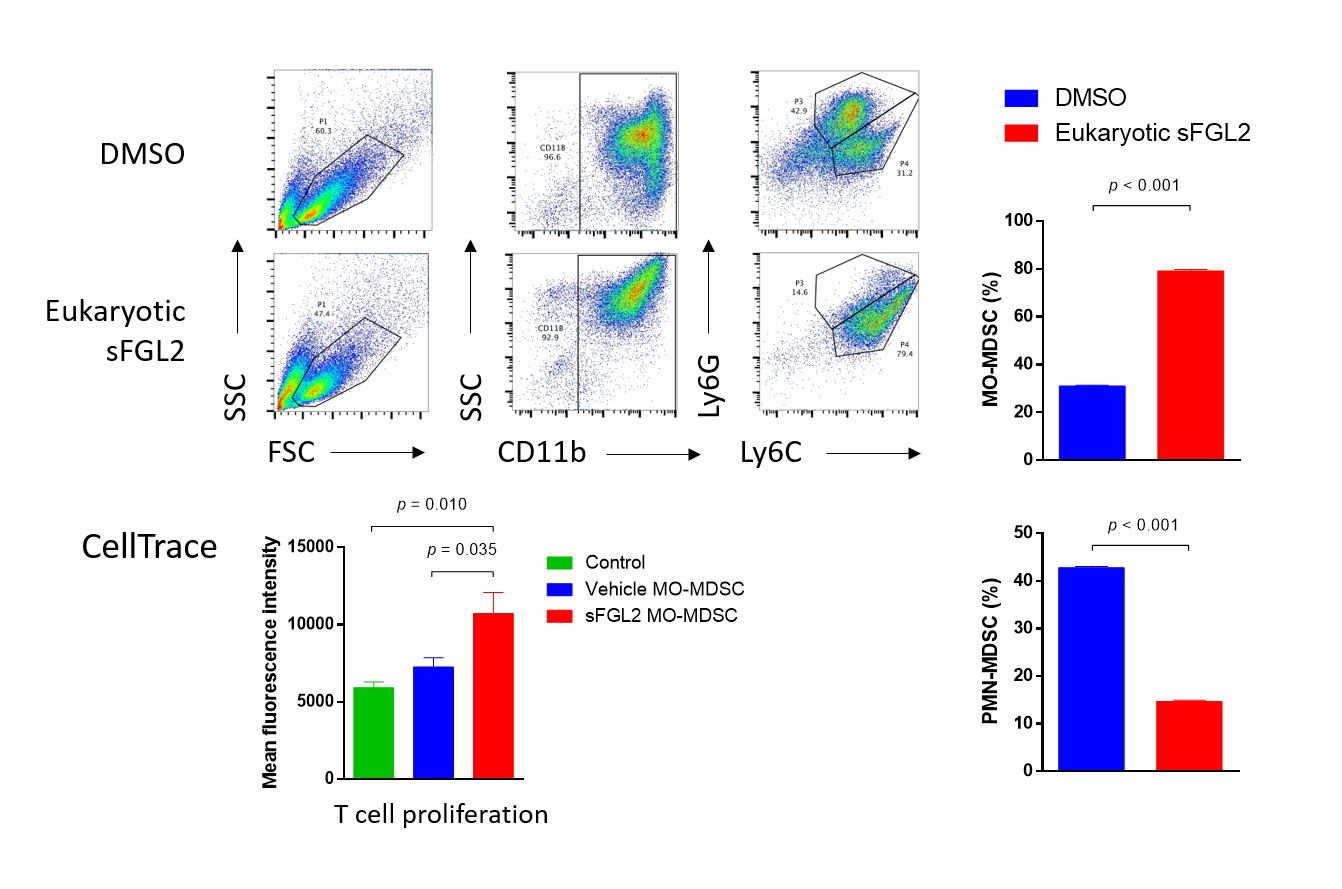Soluble Fibrinogen-Like Protein 2 Regulates MDSCs Differentiation and Function in Allograft Immunity
Urology, Zhongshan Hospital, Fudan University, Shanghai, China
Meeting: 2019 American Transplant Congress
Abstract number: C22
Keywords: Neutrophils, Rejection
Session Information
Session Name: Poster Session C: Innate Immunity; Chemokines, Cytokines, Complement
Session Type: Poster Session
Date: Monday, June 3, 2019
Session Time: 6:00pm-7:00pm
 Presentation Time: 6:00pm-7:00pm
Presentation Time: 6:00pm-7:00pm
Location: Hall C & D
*Purpose: Soluble fibrinogen-like protein 2 (sFGL2) is a novel immunoregulatory molecule, secreted mainly by regulatory T cells. CD11b+ Gr1+ myeloid-derived suppressor cells (MDSCs) are an important regulatory innate cell population and have significant inhibitory effect on T cell-mediated responses. Here, we synthesized murine full length sFGL2 by eukaryotic expression system, and investigated the impact on differentiation and function of MDSCs.
*Methods: Bone marrow cells from BABL/c mice were cultured with or without 10 μg/ml sFGL2 for 3 days and 5 days under 10 ng/ml GM-CSF stimulation. MDSC phenotypes were analyzed by flow cytometry. The mRNA and protein level of arginase-1 and iNOS was tested by q-PCR and western blot. To evaluate the sFGL-2-induced MDSC function of immunosuppression in vivo, cells were infusion via tail vein into mice using skin transplant model.
*Results: Compared with PBS, sFGL2 significantly induced CD11b+Ly6G–Ly6Chigh MDSC (MO-MDSC) differentiation but inhibited CD11b+Ly6G+Ly6Clow MDSC (PMN-MDSC) differentiation. The sFGL2-induced MO-MDSCs significantly inhibited T cells proliferation compared with those induced by PBS. Besides, sFGL2-induced MO-MDSCs demonstrated higher expression of arginase-1 and iNOS at both mRNA and protein level. Furthermore, adoptive transfer sFGL2-induced MO-MDSCs prolonged the skin allograft survival in mice. In the sFGL2-induced MO-MDSCs infusion group, the transplanted skin allograft showed mild inflammatory immune cell infiltration, less apoptosis and necrosis, and lower pro-inflammatory cytokines expression. T cells in the recipient mouse displayed a lower autoimmune phenotype (lower TCR+ CD44high CD62low cells).
*Conclusions: Taken together, our results indicate sFGL2 prompts MO-MDSCs differentiation and enhances their immunosuppressive function.
To cite this abstract in AMA style:
Yang C. Soluble Fibrinogen-Like Protein 2 Regulates MDSCs Differentiation and Function in Allograft Immunity [abstract]. Am J Transplant. 2019; 19 (suppl 3). https://atcmeetingabstracts.com/abstract/soluble-fibrinogen-like-protein-2-regulates-mdscs-differentiation-and-function-in-allograft-immunity/. Accessed June 30, 2025.« Back to 2019 American Transplant Congress

